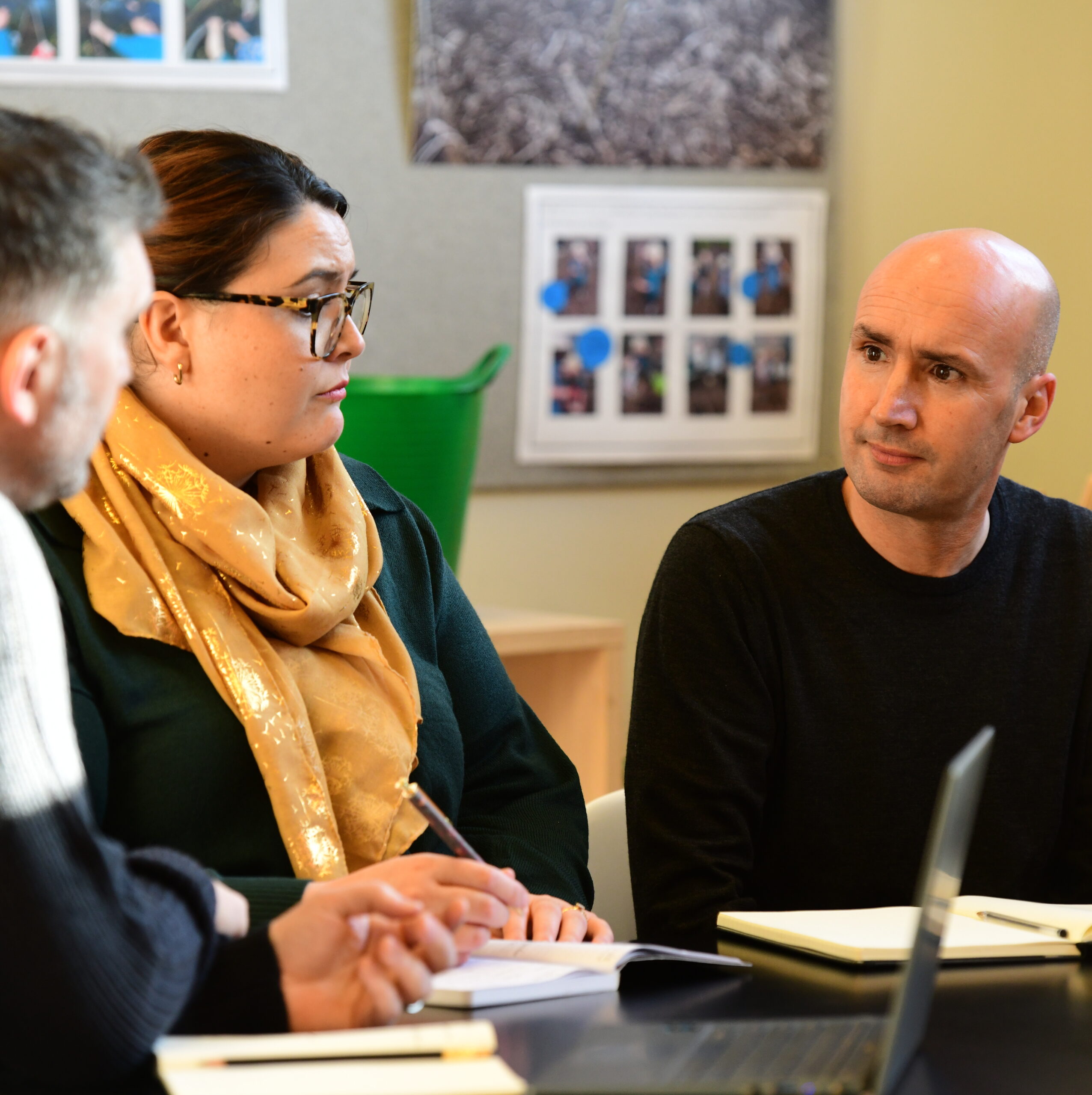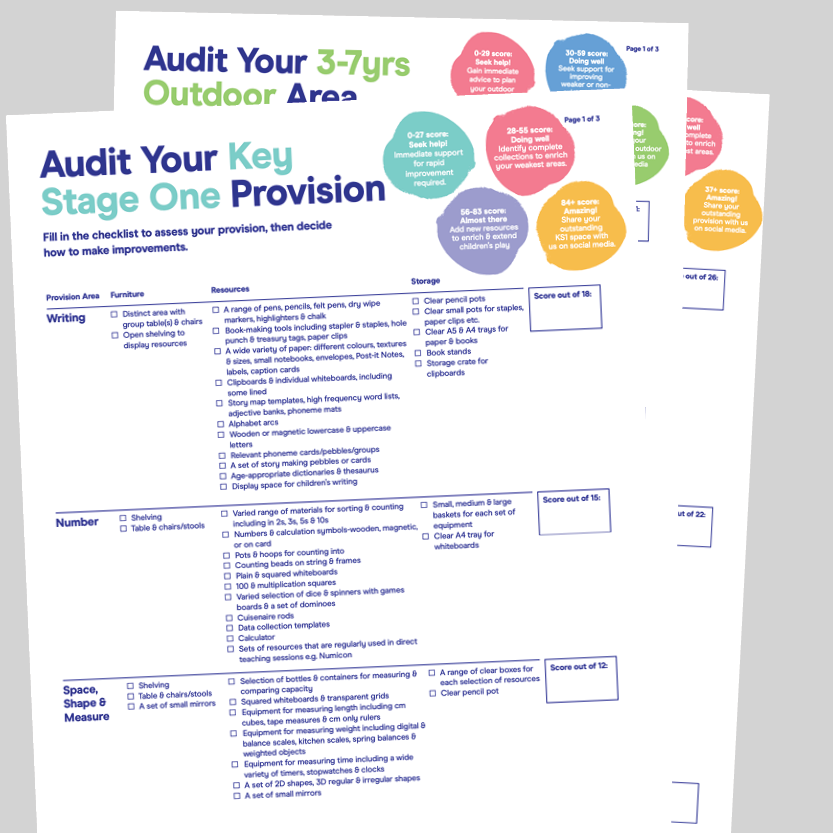It’s that busy time of year again where you’ve received a brand new cohort of children and have undoubtedly spent most of your time getting to know them as individuals and building those positive relationships with the children in your class. You will have been observing and understanding the children as learners: their starting points, their unique dispositions to learning, their interests, their family life and wellbeing, their prior knowledge and any potential gaps in their learning. But all of this is only useful if we do something with that information to ensure children make progress.
In a world where schemes of work dominate school curricula and filter into early years classrooms, we need now, more than ever, to really consider what is best for children and their learning and development. The planning process should always begin with the individual child and their starting points. Starting anywhere else, doesn’t tend to end well and often leaves children with gaps in their knowledge and vital skills left underdeveloped.
The Importance of Assessing Starting Points
Assessing and understanding children’s starting points is a vital part of children’s first few weeks and it helps to nurture a successful Early Years Foundation Stage (EYFS) journey. It lays the foundation for effective planning and ensures each child’s unique needs are met.
In the EYFS, children enter our classrooms with diverse backgrounds, skills, and understanding of the world around them. By starting with our knowledge of the individual child, we gain a clear picture of where they stand in their learning journey so far. This knowledge can empower us, enabling us to plan challenging provision and teaching that match children’s capabilities and build upon what they already know.
Shaping the Curriculum
What we do with the baseline information is crucial. From experience, baseline observations can sit in folders, hidden in cupboards and often aren’t looked at afterwards or even ever! But the key reason we carry out these baselines is to gather and analyse children’s starting points and then crucially, use this to tailor your planning going forward.
In Part 1 of Ofsted’s research into Early Years (Best Start in life part 1: setting the scene), Ofsted state, ‘When considering the curriculum in the early years, it is important to think about the knowledge that children may already have. Effective practitioners do not make assumptions about the kind of knowledge that children may bring with them from home.’
The tricky bit isn’t usually the observations of learning and development, rather it is the analysis part. An observation on its own just provides us with information about what a child is doing or can do. But it’s the analysis that is important: what does the observation tell you about the child’s learning and development and how significant is this information?
To be able to carry out the analysis part effectively, practitioners must have a good understanding of children’s ‘typical’ development as this will help you to understand the significance of what you are observing.
Development Matters and the Birth to Five Matters document are both valuable resources which will support you and other practitioners in understanding child development and also in identifying the subsequent steps in children’s learning. Both tools offer distinctive approaches and are useful in the analysis process as they help to connect children’s development to the areas of learning within the EYFS and also to the Characteristics of Effective Teaching and Learning. It would be worthwhile to explore both of these and perhaps gather a collection of resources that provide guidance on typical developmental stages in order to support you in analysing children’s starting points. Be careful that you don’t use these tools as ‘checklists’. They are there to help you with analysing and planning ahead for the children in your class.
Ensuring Progress
No two children are the same, and therefore starting with ‘Week 1’ of a prescribed maths scheme for example, will be challenging for many children as they will have very different starting points. Some may come with prior knowledge and skills, while others might never have come across a concept or may have gaps in their understanding. By analysing baseline assessments, we can identify these gaps quickly and develop targeted teaching to meet the needs of the children.
The aim is to be able to tailor our continuous provision and implement strategic teaching methods to bridge the knowledge gaps effectively and ensure we are not building on foundations of sand. Formal interventions shouldn’t be seen as the only solution to support or challenge children, and neither should prescribed schemes of work. What we should be doing is first addressing the quality of our teaching and the quality of our provision to ensure it meets the needs and stretches just beyond children’s starting points. To do this, we must first focus on those starting points and glean that crucial information about how to shape our curriculum and learning experiences.
Things to consider…
- How confident are you and your team in observing and analysing children’s starting points?
- Is there a detailed and consistent understanding of child development across the team?
- Do you draw on a bank of resources to help support practitioner knowledge of child development?
- Do your observations of children’s starting points inform your planning, changes to your provision and the role of the adult?
- Are there any current barriers to carrying out effective baselines and how might these be overcome?

Speak to one of our Curriculum Consultants to help you with designing a new space or an existing classroom. We will work with you to discuss your vision and design your rooms to create a vibrant learning environment.

Explore the importance of adult child interactions and develop your understanding with our How to Secure Effective Interactions Course leading to improved outcomes across the curriculum for all children.
Book Now

Audit your Early Years provision with our free online audit tools, and join schools across the country who are rethinking and developing their approaches to teaching and learning.
